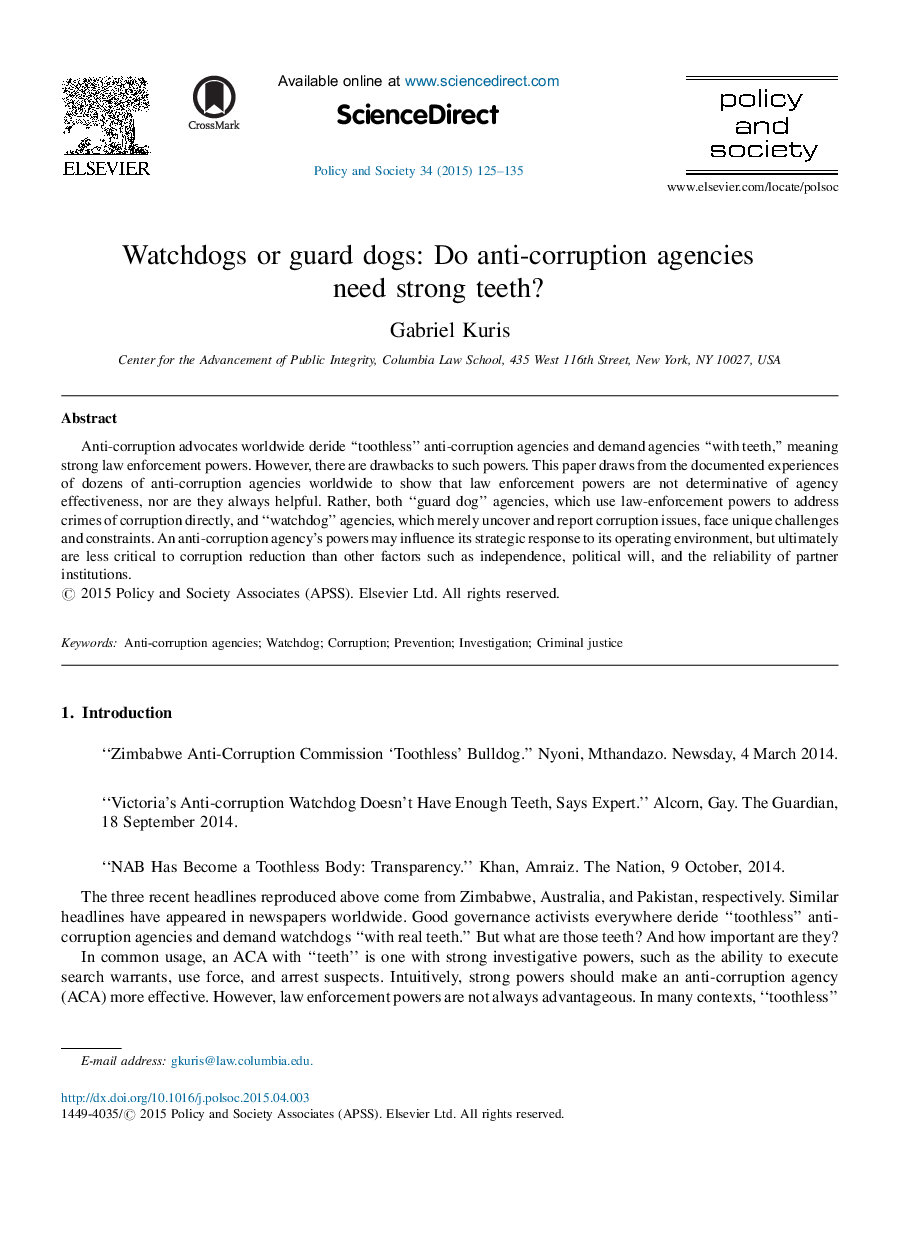| Article ID | Journal | Published Year | Pages | File Type |
|---|---|---|---|---|
| 1061491 | Policy and Society | 2015 | 11 Pages |
Anti-corruption advocates worldwide deride “toothless” anti-corruption agencies and demand agencies “with teeth,” meaning strong law enforcement powers. However, there are drawbacks to such powers. This paper draws from the documented experiences of dozens of anti-corruption agencies worldwide to show that law enforcement powers are not determinative of agency effectiveness, nor are they always helpful. Rather, both “guard dog” agencies, which use law-enforcement powers to address crimes of corruption directly, and “watchdog” agencies, which merely uncover and report corruption issues, face unique challenges and constraints. An anti-corruption agency's powers may influence its strategic response to its operating environment, but ultimately are less critical to corruption reduction than other factors such as independence, political will, and the reliability of partner institutions.
